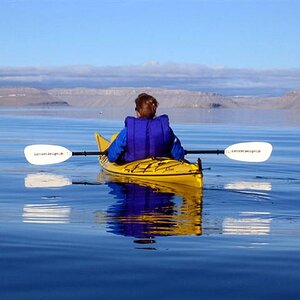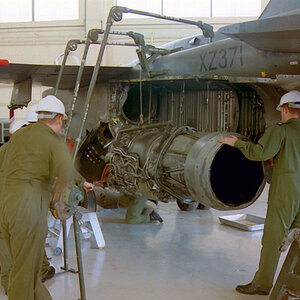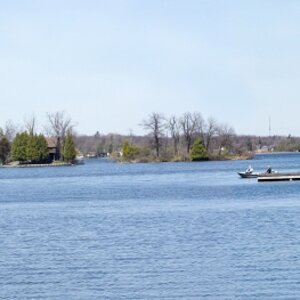I have a $5.00 sunpak polarizer I bought on Ebay a while back and it works and I do notice a difference, but I was wondering how much a difference there would be if I bought a more expensive one. I have seen them places for 50 or 60 bucks. I guess this question could be stretched for all filters for both color and B/W, what do you think?
Navigation
Install the app
How to install the app on iOS
Follow along with the video below to see how to install our site as a web app on your home screen.

Note: This feature currently requires accessing the site using the built-in Safari browser.
More options
You are using an out of date browser. It may not display this or other websites correctly.
You should upgrade or use an alternative browser.
You should upgrade or use an alternative browser.
Cheap Filters
- Thread starter stumpfoot
- Start date
auer1816
TPF Noob!
- Joined
- Jan 14, 2007
- Messages
- 139
- Reaction score
- 0
- Website
- blog.epicedits.com
- Can others edit my Photos
- Photos OK to edit
It depends on the filter size too. My 77mm filters are more expensive than my 62mm filters. There are also a few brands that are more expensive than the rest, but they're also higher quality. For most filters, you could expect to pay $50 or $100 depending on what you're getting. I've seen some in the $300 to range too -- and I actually considered getting it for a while!
cosmonaut
No longer a newbie, moving up!
- Joined
- Oct 12, 2006
- Messages
- 1,122
- Reaction score
- 98
- Location
- North Georgia
- Website
- www.gregmccary.com
- Can others edit my Photos
- Photos NOT OK to edit
You get what you pay for when it comes to filters. Just like sunglasses a $4.00 pair or a $100.00 pair. There is a difference in the quailtity and end result.
Cosmo
Cosmo
auer1816
TPF Noob!
- Joined
- Jan 14, 2007
- Messages
- 139
- Reaction score
- 0
- Website
- blog.epicedits.com
- Can others edit my Photos
- Photos OK to edit
I SECOND THAT! It seems like most photo gear has a pretty good correlation between price and quality.
cosmonaut
No longer a newbie, moving up!
- Joined
- Oct 12, 2006
- Messages
- 1,122
- Reaction score
- 98
- Location
- North Georgia
- Website
- www.gregmccary.com
- Can others edit my Photos
- Photos NOT OK to edit
Unless you are shooting film most digital cameras will simulate B&W filters. All you really need if you are digital is a good polarizer and a Graduate ND. You can adjust the effect of polarization with a circular one and not with a linear. Same with a grad.
Cosmo
Cosmo
I'm still with film. I havn't purchased any filters for B/W yet. My lense is 52mm, 35-80. I can see the differnce it makes even with a cheap one and thats why I was wondering what I was missing out on if I spent a little more and got a better quality polarizer.
xfloggingkylex
TPF Noob!
- Joined
- May 5, 2006
- Messages
- 1,292
- Reaction score
- 1
- Location
- Frederick, MD
- Can others edit my Photos
- Photos OK to edit
while a cheap filter will work, there are reasons to pay the higher dollar. Things like quality of the glass and the coatings that are applied to the glass are important. These coatings help make the glass more scratch resistant, less prone to ghosting, less prone to lens flare, and doing all of this without affecting any of the optics of the lens. Also factor in the quality of the filter ring. plastic or cheap metal vs a quality metal. paint that chips off. It the little things.
Personally since I shoot digital, all my filters will be multi coated to reduce ghosting and flaring.
Like mentioned before, you get what you pay for, but I have to say this comes with diminishing returns. After a certain point paying more for a filter doesn't quiet make it worth it.
Personally since I shoot digital, all my filters will be multi coated to reduce ghosting and flaring.
Like mentioned before, you get what you pay for, but I have to say this comes with diminishing returns. After a certain point paying more for a filter doesn't quiet make it worth it.
Torus34
No longer a newbie, moving up!
- Joined
- Jan 26, 2006
- Messages
- 2,117
- Reaction score
- 37
- Location
- Tottenville, Staten Island, NYC USA
- Can others edit my Photos
- Photos OK to edit
On simple B&W filters, check
http://www.thephotoforum.com/node/48
It would be very interesting to see A:B pictures taken with a cheaper and a top-of-the-line filter which show a significant difference in the images. This would butress the argument that pricier is better.
http://www.thephotoforum.com/node/48
It would be very interesting to see A:B pictures taken with a cheaper and a top-of-the-line filter which show a significant difference in the images. This would butress the argument that pricier is better.
fmw
No longer a newbie, moving up!
You get what you pay for when it comes to filters. Just like sunglasses a $4.00 pair or a $100.00 pair. There is a difference in the quailtity and end result.
Cosmo
You understand, of course, that the manufacturing cost of a $4 pair of sunglasses and a $100 pair could be exactly the same with the difference being brand value and advertising. The last place to get what you paid for is sunglasses. Filters might be the second to last.
fmw
No longer a newbie, moving up!
On simple B&W filters, check
http://www.thephotoforum.com/node/48
It would be very interesting to see A:B pictures taken with a cheaper and a top-of-the-line filter which show a significant difference in the images. This would butress the argument that pricier is better.
I did the test in a scientific environment 10 years ago. The description of the results, however, angers most photographers so I no longer write about it. But, in a nutshell, pricier is not better.
Garbz
No longer a newbie, moving up!
- Joined
- Oct 26, 2003
- Messages
- 9,713
- Reaction score
- 203
- Location
- Brisbane, Australia
- Website
- www.auer.garbz.com
- Can others edit my Photos
- Photos NOT OK to edit
fmw not sure what crap $100 sunglasses you wear  . But I do agree you do not get $96 more sunglasses for your buck but you do get far better quality and service. Same with filters.
. But I do agree you do not get $96 more sunglasses for your buck but you do get far better quality and service. Same with filters.
I have a Hoya UV filter on my zoom lens which causes flare when light hits it. Well duh you may say, but I have a Hoya HMC UV filter on the 50mm which is half the size and twice as expensive and does not flare. So there is a difference in quality. Whether it is worth the price or not is a great debate. Afterall if you use the UV filter just for protection, you could always just take it off.
I have a Hoya UV filter on my zoom lens which causes flare when light hits it. Well duh you may say, but I have a Hoya HMC UV filter on the 50mm which is half the size and twice as expensive and does not flare. So there is a difference in quality. Whether it is worth the price or not is a great debate. Afterall if you use the UV filter just for protection, you could always just take it off.
fightheheathens
TPF Noob!
- Joined
- Aug 1, 2005
- Messages
- 1,011
- Reaction score
- 3
- Location
- Berkeley
- Can others edit my Photos
- Photos NOT OK to edit
"you can adjust the effect of polarization with a circular one and not with a linear."
-actually you can adjust the ammount of polarization with a linear polarizer as well which is very obvious if you have ever used one...[SIZE=-1]
[/SIZE]
-actually you can adjust the ammount of polarization with a linear polarizer as well which is very obvious if you have ever used one...[SIZE=-1]
[/SIZE]
fmw
No longer a newbie, moving up!
fmw not sure what crap $100 sunglasses you wear. But I do agree you do not get $96 more sunglasses for your buck but you do get far better quality and service. Same with filters.
I have a Hoya UV filter on my zoom lens which causes flare when light hits it. Well duh you may say, but I have a Hoya HMC UV filter on the 50mm which is half the size and twice as expensive and does not flare. So there is a difference in quality. Whether it is worth the price or not is a great debate. Afterall if you use the UV filter just for protection, you could always just take it off.
Whatever you say. I wasn't talking about the quality of the sunglasses. I was talking about the manufacturing costs in China. $100 sunglasses costs less than $1 to produce in large quantities.
You don't suppose that the zoom lens being far more complex is more prone to flare do you?
fmw
No longer a newbie, moving up!
"you can adjust the effect of polarization with a circular one and not with a linear."
-actually you can adjust the ammount of polarization with a linear polarizer as well which is very obvious if you have ever used one...
And, interestingly, linear polarizers do a noticeably better job of filtering polarized light than circular ones do.
Most reactions
-
 442
442 -
 284
284 -
 280
280 -
 266
266 -
 216
216 -
 185
185 -
 181
181 -
 174
174 -
 169
169 -
 169
169 -
 163
163 -
 126
126 -
 117
117 -
I
103
-
 94
94
Similar threads
- Replies
- 20
- Views
- 499



![[No title]](/data/xfmg/thumbnail/42/42277-63576745f84be96df79b94ca0f49e00b.jpg?1619740085)
![[No title]](/data/xfmg/thumbnail/37/37623-b930ccd802f79b9c9cea990a7a5e5462.jpg?1619738153)








![[No title]](/data/xfmg/thumbnail/42/42276-99df5da06c3e5dc83ae4bab11e935910.jpg?1619740085)